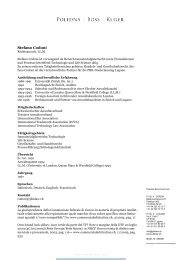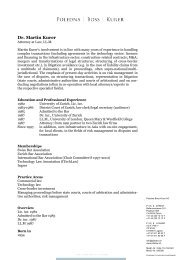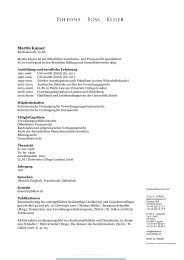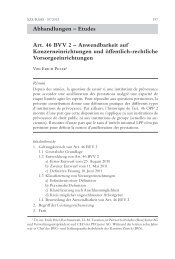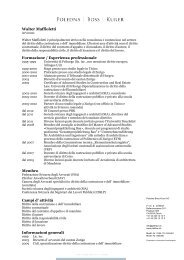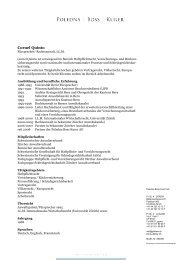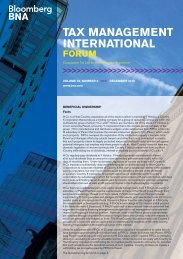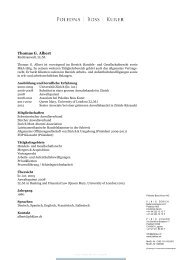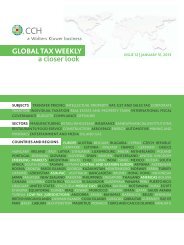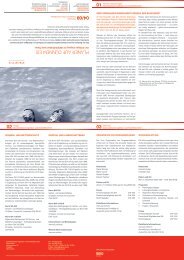721.8 kB - Poledna | Boss | Kurer
721.8 kB - Poledna | Boss | Kurer
721.8 kB - Poledna | Boss | Kurer
- No tags were found...
Create successful ePaper yourself
Turn your PDF publications into a flip-book with our unique Google optimized e-Paper software.
FEATURED ARTICLESISSUE 30 | JUNE 6, 2013Substance Requirements Of AForeign Permanent EstablishmentOf A Swiss Finance Companyby Walter H. <strong>Boss</strong> and Stefanie Monge,<strong>Poledna</strong> <strong>Boss</strong> <strong>Kurer</strong> AG, ZurichI. IntroductionOn October 5, 2012 the Swiss Federal Supreme Courtdecided a leading case in the area of international taxallocation with respect to federal corporate incometax. 1 The issue was whether a foreign permanent establishment("PE") of a Swiss finance company witha rather lean infrastructure qualified as a PE underSwiss domestic tax law if compared to the figuresshown in the P&L statements of the Swiss company.One should note that the Swiss company had obtaineda ruling from the competent cantonal taxadministration in which it had been agreed that theprofits attributed to the foreign PE would be exemptfrom Swiss taxation.II. Factual BackgroundThe company at issue, hereinafter referred to as XAG, was a Swiss company domiciled in the cantonof Zug, belonging to a Swiss group of companies.The group holding company, of which X AG was awholly owned subsidiary, was also domiciled in thecanton of Zug. The statutory purpose of X AG wasthe financing of the group. For that purpose X AGmaintained a PE on the Cayman Islands with anoffice and four part-time employees.On August 10, 1999 the tax administration of thecanton of Zug approved a ruling request submittedby the parent company of X AG. Therein it wasagreed that in case the group financing would bedone through a foreign PE of a Swiss finance groupcompany, the profits attributed to the foreign PEwould be exempt from taxation in Switzerland.Up to the fiscal year 2004 the Zug tax administrationallocated the net financial income of X AG resultingfrom granting inter-company loans to the CaymanIslands PE, which in essence means that the net financialincome of X AG was exempt from taxationin Switzerland. In the course of 2004 the Federal TaxAdministration ("FTA") – the supervisory authorityof the cantonal tax administrations with respect tofederal income tax – instructed the Zug tax administrationto investigate concerning the existence of aPE on the Cayman Islands. In early 2005 the Zugtax administration informed X AG that the FTA wasof the view that its business activity on the CaymanIslands did not meet the requirements of a PE. Consequently,as of January 1, 2005 the Zug tax administrationrefused to exempt the net financial incomeof X AG from federal corporate income tax.5



